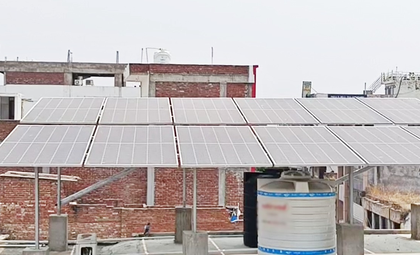Solar with storage cheaper than new thermal power for round‑the‑clock supply: Report
By IANS | Updated: October 15, 2025 18:05 IST2025-10-15T18:00:35+5:302025-10-15T18:05:14+5:30
New Delhi, Oct 15 The solar power combined with a storage facility is now more cost-effective than constructing ...

Solar with storage cheaper than new thermal power for round‑the‑clock supply: Report
New Delhi, Oct 15 The solar power combined with a storage facility is now more cost-effective than constructing new thermal plants to fulfil round-the-clock electricity demand, a report said on Wednesday.
The Energy and Resources Institute (TERI) released the report after conducting a study on the seasonal peak demand day of BSES Rajdhani Power Limited (BRPL).
The study analysed the per-unit cost of meeting the demand of the DISCOM using solar power combined with battery energy storage systems (BESS) and pumped storage plants (PSP) in comparison to thermal power generation.
The report said that the cost of solar combined with battery energy storage systems (BESS) ranges from Rs 3.9 to Rs 4.3 per kWh, while solar paired with pumped storage plants (PSP) costs between Rs 4.4 and Rs 4.9 per kWh.
In comparison, new thermal plants, which generate electricity, cost Rs 5.4–Rs 5.8 per kWh.
The results show that solar power coupled with storage is cheaper than new thermal generation while offering a cleaner, reliable supply, the report said.
"With solar tariffs down by over 90 per cent in the past decade, the next step for the country should be to expand affordable storage to enable India’s 24x7 green power future," said experts at the institute.
As of August 2025, the installed solar power capacity is 125 GW out of about 495 GW installed capacity in India, whereas in 2020, the total solar power installed was 61 GW out of 371GW total installed capacity.
India has also witnessed solar tariffs drop from Rs 17.91/kWh (2010-11) to Rs 1.99/kWh (2020) -- a 91 per cent fall in costs between 2010 and 2020, the report said.
India has declared its intention of creating 500 GW of non-fossil capacity by 2030 and becoming net zero by 2070.
Disclaimer: This post has been auto-published from an agency feed without any modifications to the text and has not been reviewed by an editor
Open in app